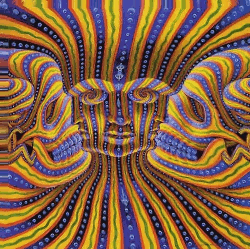
Moderators: Elvis, DrVolin, Jeff
But many experts say that is precisely the problem. Claims that defy almost every law of science are by definition extraordinary and thus require extraordinary evidence. Neglecting to take this into account — as conventional social science analyses do — makes many findings look far more significant than they really are, these experts say.
nathan28 wrote:But many experts say that is precisely the problem. Claims that defy almost every law of science are by definition extraordinary and thus require extraordinary evidence. Neglecting to take this into account — as conventional social science analyses do — makes many findings look far more significant than they really are, these experts say.
Can someone unpack this language for me? I really don't understand something about it--probably the underlying assumptions, which are unclear to me as well.
nathan28 wrote:But many experts say that is precisely the problem. Claims that defy almost every law of science are by definition extraordinary and thus require extraordinary evidence. Neglecting to take this into account — as conventional social science analyses do — makes many findings look far more significant than they really are, these experts say.
Can someone unpack this language for me? I really don't understand something about it--probably the underlying assumptions, which are unclear to me as well.
nathan28 wrote:But many experts say that is precisely the problem. Claims that defy almost every law of science are by definition extraordinary and thus require extraordinary evidence. Neglecting to take this into account — as conventional social science analyses do — makes many findings look far more significant than they really are, these experts say.
Can someone unpack this language for me? I really don't understand something about it--probably the underlying assumptions, which are unclear to me as well.
All four decided that the paper met the journal’s editorial standards, Dr. Judd added, even though “there was no mechanism by which we could understand the results.”
But many experts say that is precisely the problem. Claims that defy almost every law of science are by definition extraordinary and thus require extraordinary evidence."
Joe Hillshoist wrote:An extraordinary claim is one that falls outside the mechanisms that have been accepted by science, and so for it account for the lack of precedent supporting it, something else has to come into play. This is the extraordinary evidence and basically that is something so undeniable that even dogmatic opponents of the claim have to accept that there is something in it.
the saying is credited credited to Marcello Truzzi.
According to wikipedia its derived from Hume's saying "A wise man, therefore, proportions his belief to the evidence"
Searcher08 wrote:nathan28 wrote:But many experts say that is precisely the problem. Claims that defy almost every law of science are by definition extraordinary and thus require extraordinary evidence. Neglecting to take this into account — as conventional social science analyses do — makes many findings look far more significant than they really are, these experts say.
Can someone unpack this language for me? I really don't understand something about it--probably the underlying assumptions, which are unclear to me as well.
I don't recall the scientific method including this canard
Does anyone know the origin of this?
Physics and biology, among other disciplines, overwhelmingly suggest that Dr. Bem’s experiments have not changed those odds, Dr. Rouder said.

Oops, my bad.tazmic wrote:Joe Hillshoist wrote:the saying is credited credited to Marcello Truzzi.

I'm not even sure how a psychologist would be qualified to tackle an experiment like this. Psychology deals with subjective, internal phenomena - so why was he dabbling with a problem based on external manifestations? This area of inquiry would be more in the realm of physics than any of the social "sciences".
tazmic wrote:So the problem is precisely that there is no theory to explain the observations. And this naturally makes the observations extraordinary. But the (simple, ordinary) claim that these observations amount to evidence for what they naturally represent results in significant consequences for established paradigms and so it's easier to conclude that the observations are evidence of something more complicated, as yet unknown, but definitely benign...
Perhaps, in this context "A scientist, therefore, proportions his belief to the extraordinary evidence, and otherwise, if he can get away with it, proportions the evidence to his belief"?
Users browsing this forum: No registered users and 11 guests